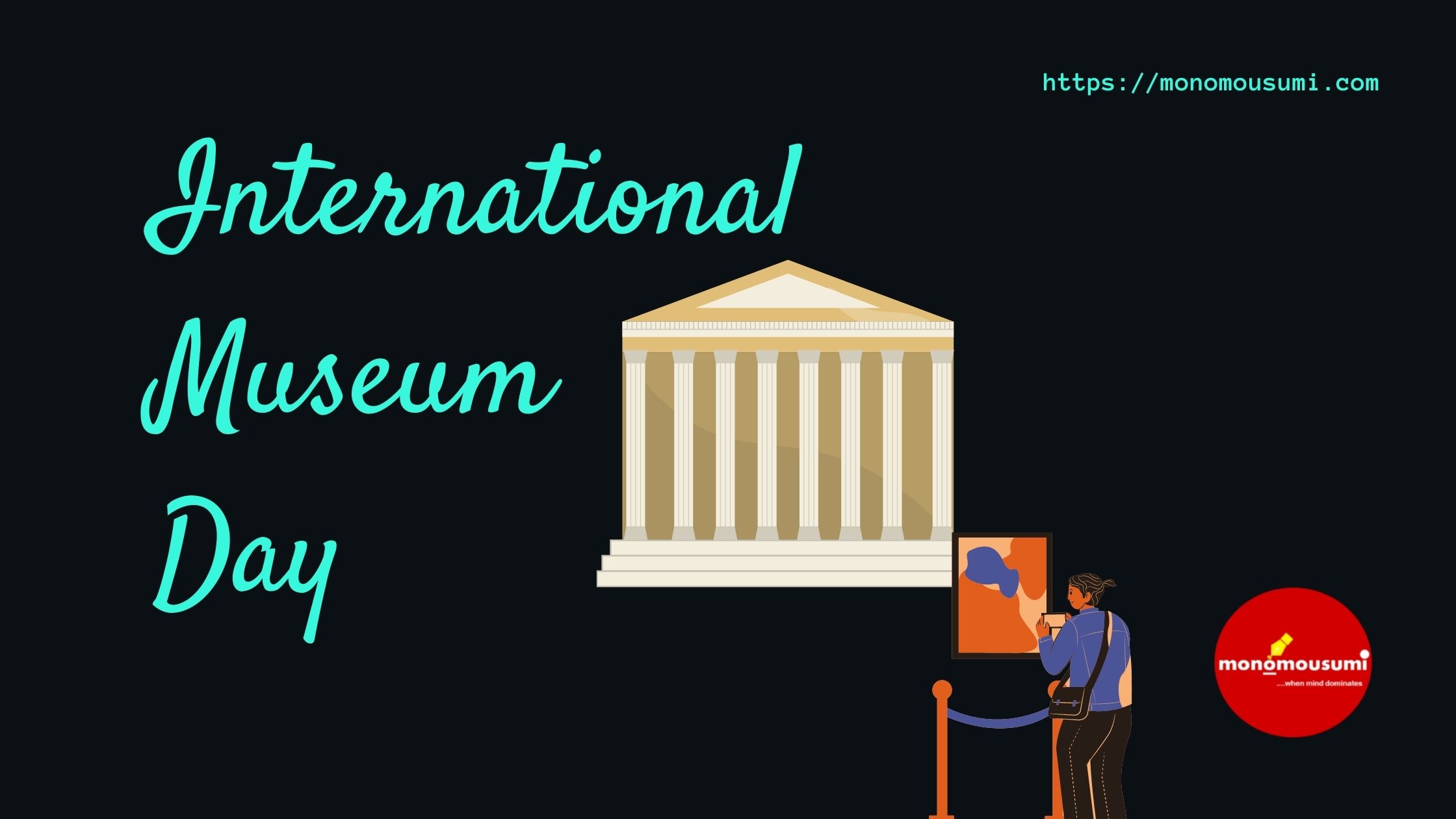
Museums play an important role in cultural exchange and enrichment along with the development of mutual understanding, cooperation and peace among peoples. It works as a bridge between people and cultures and promotes people’s participation and diversity. Every year, on and around 18 May, we celebrate International Museum Day (IMD) to deepen the relationships between people and museums even further and to acknowledge the role museums play in the development of society. It has also been used as an opportunity to make people aware about the challenges that museums face.
Each year, museums internationally are invited to participate in IMD to promote the role of museums around the world through events and activities. An international organisation ‘International Council of Museums’ (ICOM) solely coordinates this annual day in which more than 37000 museums from about 158 countries and territories take part in. The first International Museum Day took place in 1977 with the adoption of a resolution during the ICOM General Assembly in Moscow, Russia with the goal of further unifying museums’ creative aspirations and efforts and drawing the attention of the global public to their work. Since then this trend has continued till now highlighting specific relevant themes. Considering the devastating influence of the corona pandemic over the activities of museums all over the world, the theme of IMD 2021 was ‘The Future of Museums: Recover and Reimagine’.
The global pandemic of COVID-19 has had serious socio-economic consequences on museums, which are part of the cultural-educational sector, as well as dynamic community hubs. Survey conducted by International Council of Museums (ICOM) between 7 April and 7 May 2020 under the title of ” Museums, Museums Professionals and COVID-19 ” picturises disruptive figures of impact of COVID-19 pandemic over the activities of museums all over the world. The survey highlights that the pandemic has threatened the financial survival and the livelihood of museum professionals.
- Almost all museums around the world were closed in April 2020 due to pandemic COVID-19.
- Almost all museums around the world have had to reduce their activities as a consequence of COVID-19 pandemic : nearly one third will downsize and more than one in ten may be forced to close permanently.
- In African, Asian and Arab countries 24%, 27% and 39% respectively fear that museums may close, compared to only 12% in Latin America and the Carribean, 10% in North America and 8% in Europe.
- In 84% of museums, museum professionals worked from home while freelance museum professionals have been either temporarily laid off or unpaid.
UNESCO Report ” Museums Around the World in The Face of COVID-19 ” ( May 2020 ) reveals that within around 95000 museums, 90% of them closed their doors during the crisis and more than 10% may never reopen.
- Although museums have developed their presence on the internet, the digital divide has lessened the access to common man.
- Some museums got some assistance from public subsidies, but a large number of institutions depend greatly on financial contributions from visitors (paid visits, purchases, etc.) and donors, which were temporarily blocked due to lockdowns.
- Network of European Museum Organizations (NEMO) estimates losses of 75-80% due to a drastic decrease in cultural tourism and closing of borders.
- According to the Network of European Museum Organizations (NEMO) survey, 30% of museums have reported losing up to €1,000 per week, and 25% up to €5,000 due to less museum admissions and commercial activities.
While the corona pandemic has taken a hard socio-economic test of our museums, our museums have shown it’s fundamental characteristic of ‘Resilience’. Museums have always been able to reinvent themselves and adapt to change in society. Several museums have formulated new methods of staying in touch with their audiences and trying to generate alternative monetary capacity by utilizing the online realm through internet links and the use of social media platforms. The Jordan Museum, The Bangbandhu museum in Bangladesh, The National costume Museum of Grand Bassam in Cote d’Ivoire etc have set up virtual reality experiences or 360 degree tours for public exhibition on their online platforms. Moreover the children museum of jordan came with an online interactive educational materials to engage the children during the lockdown in their activities. Many museums such as Hostings Contemporary, United Kingdom have sought to take the advantage of deserted rooms to present an offbeat view of the collections or tour with a robot. A number of institutions such as Leventis Gallery in Cyprus made the most of the lockdown to develop their social media activities to involve and interact with the community. Many of the museums all over the world encouraged international participation through educational games, children’s stories, quizzes, video games and many more.
International Museum Day highlights commitments of our museums to our society and how our museums have coped with this crisis effectively and efficiently. It also highlights the importance of museums in the development of society along with preservation and promotion of our cultural heritage. This day is not just a day for the acknowledgement of the role of museums in our society, but it is a day for the acknowledgement of our cultural and civilizational identity because museums are the past and present identity of ourselves. Participation in International Museum Day is growing among museums all over the world but our museums need more international and national attention to regain the momentum in the near future for the good of humanity.
” LIFE IS A PASSAGE THROUGH A MUSEUM OF BEAUTY “. – Robert Genn
By Prajjwal Kasera, Uttar Pradesh


